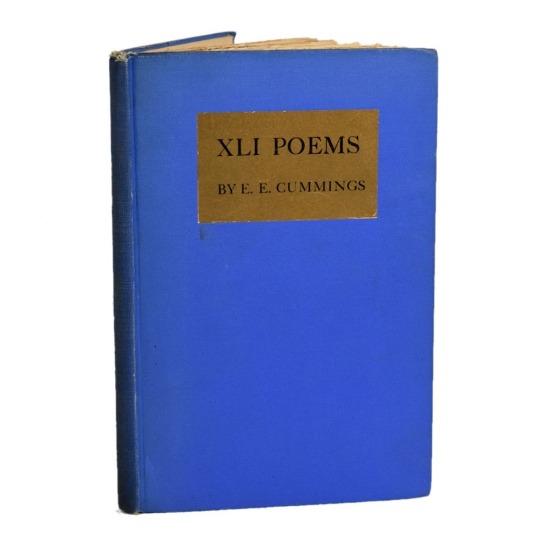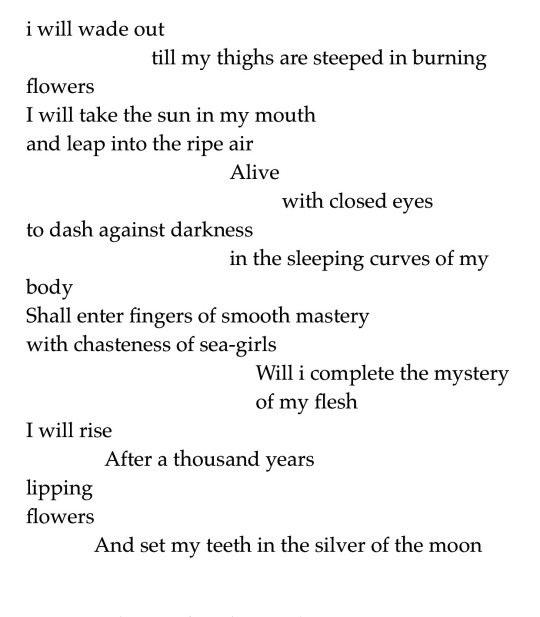#modern american poetry
Explore tagged Tumblr posts
Text


Elegy as Evening, as Exodus, James Harms, 2004. [Freeways & Aqueducts : Poems, Pittsburgh : Carnegie Mellon University Press]
#poetry#poem#American poetry#modern American poetry#contemporary poetry#American poet#James Harms#LA poet#Los Angeles poet#California Dreaming#Made in LA
1 note
·
View note
Text

Inward by Yung Pueblo
#inward#yung pueblo#quote#typography#diego perez#literature#aesthetic#dark academia#light academia#celestial#the self#bodymind#stars#modern poetry#south american poets
726 notes
·
View notes
Text

To learn and think; to think and live; to live and learn: this always, with new insight, new understanding, and new love.
- The Unabridged Journals of Sylvia Plath
#bookblr#booklr#girlblogging#literature#quoteblr#literary quotes#quote blog#classic literature#book quote#book quotes#sylvia plath#the unabridged journals of sylvia plath#american literature#modern classics#bookish#books#quotes#quoteoftheday#life quote#beautiful quote#quotes about life#aesthetic quotes#spilled poetry#spilled feelings#spilled words#spilled thoughts#spilled ink#spilled writing#quotes and poems#dark academia
56 notes
·
View notes
Text

Joan Didion, from Slouching Towards Bethlehem
#joan Didion#slouching towards bethlehem#literature#books#poetry#litblr#literary#literature quotes#modern literature#american literature#english literature#literature excerpt#book blog#book excerpt
329 notes
·
View notes
Text

Man Ray
Paul Eluard and Valentine Hugo
ca. 1935
#man ray#paul eluard#valentine hugo#surrealist painting#surrealist art#surrealist poetry#surrealist artist#surrealist photography#surrealism#surrealist#american photographer#french painters#french poetry#modern art#art history#aesthetictumblr#tumblraesthetic#tumblrpic#tumblrpictures#tumblr art#aesthetic#beauty#tumblrstyle
43 notes
·
View notes
Text
I haven't actually opened my poetry drafts in a long time because of... well, a lot of reasons actually, but I glanced at it today to see the last one I was working on was titled "Drop that or by the splendor of god I'll blow your heart out"
Okay, two-years-ago Jess, go off?!
#american historical neoconfessional is NOT a style of modern poetry but I sure was going for it#think this was actually a kit carson quote#couldn't decide if book was about tornados ala Smith's Blood Dazzler or my fav topic bad old men#charm stuff
9 notes
·
View notes
Text
"I came into this world already scarred by loss on both sides of my family. My Indigenous side; my European side. My father and my mother were the kind of damaged people who should never have had children. But of course, they had me, and so my first language was loss."
Deborah Miranda, When Coyote Knocks on the Door (2021)
#quotes#literature#lit#poetry#spilled ink#modern literature#poets of color#native literature#indigenous literature#native authors#native writers#women authors#women writers#queer authors#queer writers#indigenous writers#indigenous authors#indigenous women#native american literature#deborah miranda#american literature
68 notes
·
View notes
Text

T. S. Eliot, from “Collected Poems: 1909-1962; The Waste Land: I. The Burial of The Dead”, originally published c. 1963.
#T. S. Eliot#Collected Poems: 1909-1962#American Literature#American-British Literature#Poetry#Quotes#Modernism#Lit#Litblr#Dark Academia
24 notes
·
View notes
Text
"I Watched the Moon Around the House" by Emily Dickinson Another moon-obsessed poet, Dickinson took the mysterious orb as a metaphor for all sorts of moods. One night, sleepless as ever, she encountered it as a familiar reflection of her own strangeness.

I watched the Moon around the House
Until upon a Pane—
She stopped—a Traveller’s privilege—for Rest—
And there upon
I gazed—as at a stranger—
The Lady in the Town
Doth think no incivility
To lift her Glass—upon—
But never Stranger justified
The Curiosity
Like Mine—for not a Foot—nor Hand—
Nor Formula—had she—
But like a Head—a Guillotine
Slid carelessly away—
Did independent, Amber—
Sustain her in the sky—
Or like a Stemless Flower—
Upheld in rolling Air
By finer Gravitations—
Than bind Philosopher—
No Hunger—had she—nor an Inn—
Her Toilette—to suffice—
Nor Avocation—nor Concern
For little Mysteries
As harass us—like Life—and Death—
And Afterwards—or Nay—
But seemed engrossed to Absolute—
With shining—and the Sky—
The privilege to scrutinize
Was scarce upon my Eyes
When, with a Silver practise—
She vaulted out of Gaze—
And next—I met her on a Cloud—
Myself too far below
To follow her superior Road—
Or its advantage—Blue—
#emily dickinson#i watched the moon around the house#poem#poetry#american poet#modernism#19th century#literature
8 notes
·
View notes
Text


E. E. Cummings – Crepuscule (I Will Wade Out)
XLI Poems, 1925
#history#vintage#literature#writing#modernism#poetry#book#modern poetry#ee cummings#crepuscule#xli poems#1920s#1925#poetry book#american poetry#experimental poetry#twentieth century#twentieth century history#twentieth century poetry#american history#first edition#portrait
28 notes
·
View notes
Text

From an American Literature Facebook group. of the modernist poets had mottoes or credos that pointed to their philosophy of poetry.
a. Robert Frost said a “poem begins in delight and ends in wisdom,” and a poem is “a momentary stay against confusion.”
b. Ezra Pound said, “Make it new” and “Go in fear of abstractions.”
c. T.S. Eliot wanted to “shore up the fragments against the ruins.”
d. William Carlos Williams said, “No ideas but in things” (meaning exists in the world).
e. Wallace Stevens said, “Poetry is the supreme fiction” and “Not ideas about the thing, but the thing itself” (there is no meaning in the world except that which is created by the poet’s imagination).
Marianne Moore’s most famous credos were:
a. “Imaginary gardens with real toads in them.” This combines Williams’ location of meaning in the external world with Stevens’ location of meaning in the poet’s imagination.
b. “Ecstasy affords the occasion and expediency determines the form.” This shows how we get from Frost’s “delight” to “wisdom.”
There are three major principles at work in Moore’s poetry:
1. Her poetry reads exactly like prose. She felt that prose was better written than poetry, that it contained precision, verbal economy, directness, and logic unimpeded by the demands of poetical devices. She wanted to write poetry that was cold, hard, exact, clear, and literal. She called herself a “literalist of the imagination.” She wanted to remove from poetry all fuzziness, convention, romance, self-indulgence, and beauty—everything that interferes with or distorts perfect communication with the reader.
2. Her poetry even tries completely to remove the meter and rhyme that Frost held onto. She avoided metrical feet—what she disparaged as the “tick-tock of the metronome,” and even any accented words or syllables (if you try to scan her poems, you cannot). Her line division, in the absence of meter and cadence, is purely arbitrary. She governs her line breaks only by her desire to highlight or play down certain naturally occurring rhymes that go unnoticed in ordinary speech and prose. Often, her stanzas are governed only by a syllable count.
3. Not only was her poetry like prose—with a didactic moral point to it—but she believed, like her close friend Williams, that anything was a fit subject for poetry, including business documents, baseball statistics, school reports, and scientific data (these are the “real toads” in her “imaginary garden”). Stevens believed that the imagination of the poet created order out of the chaos of things. Even Williams’ “no ideas but in things” at least left the poet free to discover ideas in those things. But Moore leaves the poet only the function of shifting around the “real toads” in some sort of pattern in her “imaginary garden.” Hers is the most astringent, self-effacing poetry ever to appear in America.
"Poetry" (1919) by Marianne Moore
I too, dislike it: there are things that are important beyond all this fiddle.
Reading it, however, with a perfect contempt for it, one discovers that there is in
it after all, a place for the genuine.
Hands that can grasp, eyes
that can dilate, hair that can rise
if it must, these things are important not because a
high-sounding interpretation can be put upon them but because they are
useful; when they become so derivative as to become unintelligible, the
same thing may be said for all of us—that we
do not admire what
we cannot understand. The bat,
holding on upside down or in quest of something to
eat, elephants pushing, a wild horse taking a roll, a tireless wolf under
a tree, the immovable critic twinkling his skin like a horse that feels a flea, the base—
ball fan, the statistician—case after case
could be cited did
one wish it; nor is it valid
to discriminate against “business documents and
school-books”; all these phenomena are important. One must make a distinction
however: when dragged into prominence by half poets, the result is not poetry,
nor till the autocrats among us can be
“literalists of
the imagination”—above
insolence and triviality and can present
for inspection, imaginary gardens with real toads in them, shall we have
it. In the meantime, if you demand on the one hand, in defiance of their opinion—
the raw material of poetry in
all its rawness, and
that which is on the other hand,
genuine, then you are interested in poetry.
Photo: Moore with her close friend Muhammad Ali. Yes, she really was that cool.
6 notes
·
View notes
Text

Joan Baez in Joan Didion’s Slouching Towards Bethlehem
#joan baez#Joan Didion#slouching towards bethlehem#literature#books#poetry#litblr#american literature#modern literature#english literature#book excerpt#excerpts
149 notes
·
View notes
Text





Girl's Express
[This article is incomplete due to an incomplete scan! If you have it, please share it with me!]
American Girl Magazine, September/October 1996
[Ko-Fi Donations]
#DAMAGED PAGE#American Girl Magazine#1990s#1996#SepOct#SepOct1996#Girl's Express#Paul Meisel#Contest#money maker#Buzzword#AG Poll#Modern Day Girls#HALLOWEEN#Poetry#Money Maker#AFRICAN AMERICAN#BLACK
3 notes
·
View notes
Text

Images of the Beast: Los Angeles by Charles Bevins. Truth And Lies That Press For Life: Sixty Los Angeles Poets, edited by Connie Hershey. [Concord, Mass.: Artifact Press]
#poetry#modern poetry#contemporary poetry#American poetry#LA poetry#Los Angeles poetry#LA poet#Los Angeles poet#Los Angeles#Charles Bevins
3 notes
·
View notes
Text
Rain drops covered -
Engine push start
On work times edge.
Swerving through cold lifeless steel.
Reverse in space -
Cold like others
Until push start.
- Gullah Conjure 2024
#black americans#african american#folk magic#earth#rootwork#spiritualism#conjure#modern poetry#words#writing#black men#black tumblr#poetry
4 notes
·
View notes
Quote
i cry because i’m human and i’m connected and there is immense sadness in the world. i cry because humanity is frightening. because one person consumed with self-hatred and armed with one gun can kill an entire room of people. i cry because shame propels so many of us. i cry because so many people forget how important it is to cry, are made to feel weak when they do. i cry because i want to close my eyes to the world. i cry because i can’t.
Mary Lambert, Shame Is an Ocean I Swim Across; “God Damn You, Sarah McLachlan”
#literature#poetry#mary lambert#shame is an ocean i swim across#mourn with the moon#modernity has failed us#american lit#m#x
73 notes
·
View notes